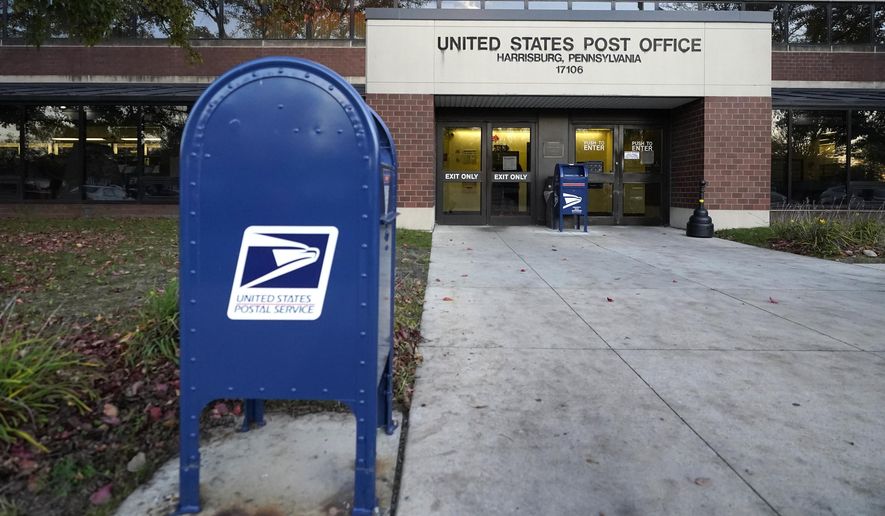The House Oversight and Reform Committee has the U.S. Postal Service in its crosshairs for an investigation of allegations that postal inspectors snooped on Americans via their social media accounts and online activity.
Rep. Andrew Clyde, a Georgia Republican on the committee, authored a request for the Biden administration to hand over records related to information about the inspectors’ Internet Covert Operations Program (iCOP) in response to a Washington Times expose in September about the operation.
Postal inspectors monitored protesters across the country, including people focused on guns, policing, and President Biden’s election, according to records from September 2020 through April 2021 obtained by The Times.
The committee’s Democratic majority shot down Mr. Clyde’s request on Tuesday, but he vowed to keep digging for details after his party takes control of the House and the committee next month.
“Here we have them literally going through people’s social media posts to find out what in the world they’re doing and saying and thinking,” Mr. Clyde said. “I’m sorry but Americans should be concerned about their freedom of speech with regard to what the post office is doing.”
Earlier this year, the Postal Service’s inspector general said it determined postal employees overstepped their law enforcement authority in its use of an open-source intelligence tool for analyzing social media as part of iCOP.
SEE ALSO: Mail fraud? Biden’s postal inspectors tracked pro-gun activists
Mr. Clyde wrote a resolution seeking records detailing the work of the postal inspectors’ surveillance, particularly regarding the potential monitoring of pro-life, pro-gun, and conservative groups.
Oversight Committee Chairwoman Carolyn B. Maloney, New York Democrat, opposed the resolution during a committee markup on Tuesday and said the desired investigation was partisan.
“This resolution seems to be suggesting that President Biden somehow used the Postal Service to spy on conservatives and other people but nothing could be further from the truth,” Ms. Maloney said. “The truth is the Postal Service is an independent agency, which is not subject to direction from the president or the White House.”
Republicans bristled at Ms. Maloney’s accusation of partisan motivation for a probe. Rep. Pat Fallon, Texas Republican, cautioned Democrats to consider that the U.S. Postal Inspection Service may monitor them.
“This may have been directed toward conservatives today and yesterday but it certainly could be targeted at other folks, including our friends across the aisle could be targeted tomorrow,” Mr. Fallon said.
The surveillance already has extended beyond conservatives. The records first unearthed by the Cato Institute’s Patrick Eddington show postal inspectors tracked the activity of people preparing to demonstrate against police in Kentucky, gun rights activists in Virginia and far-right groups headed to Washington after Mr. Biden’s election.
SEE ALSO: China-backed hackers stole millions in COVID relief funds, Secret Service says
Mr. Clyde said his pursuit of records was not limited to Postal Service monitoring of conservatives.
“Whatever this shows, and I have no idea what it’s going to show, but we will follow that and we will defend every solitary citizen’s First Amendment and Second Amendment rights,” Mr. Clyde said.
The Postal Inspection Service did not directly comment on Mr. Clyde’s inquiry, but it defended the work of its iCOP, which was renamed the Analytics Team last year.
“The Internet Covert Operations Program was a function within the U.S. Postal Inspection Service, which assessed threats to Postal Service employees and its infrastructure by monitoring publicly available open source information,” USPIS said in a statement.
A March 2022 audit by the Postal Service’s inspector general said iCOP conducted proactive searches that exceeded its law enforcement authority. The watchdog also said it could not determine whether the analysts had legal authority for work spanning more than two years ending in June 2021.
• Ryan Lovelace can be reached at rlovelace@washingtontimes.com.




Please read our comment policy before commenting.